How to exercise as you age
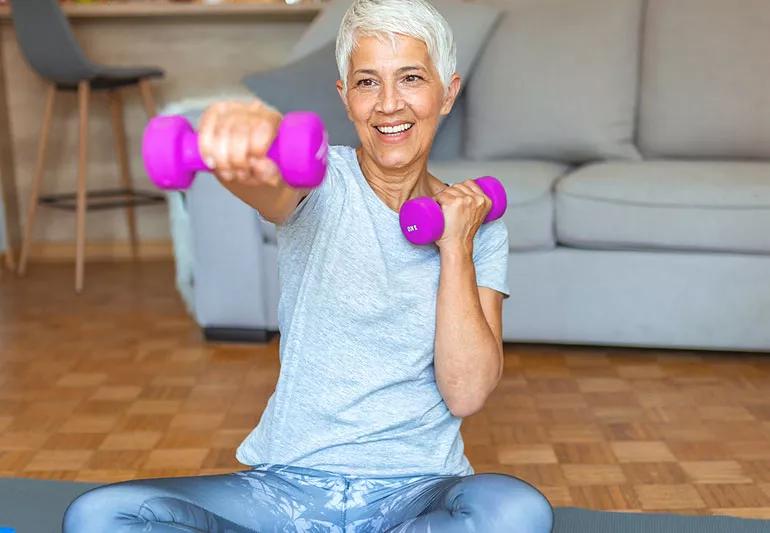
Forty may be the new 30. But if you’re approaching (or past) the mid-century mark, you probably don’t want to work out like a 20-year-old — no matter how spry you feel.
Advertisement
Cleveland Clinic is a non-profit academic medical center. Advertising on our site helps support our mission. We do not endorse non-Cleveland Clinic products or services. Policy
“Exercise is really important as you get older,” says Tom Iannetta ATC, CSCS, a senior athletic trainer and certified strength and conditioning specialist. “But you might have to adjust your routine to avoid injuries as you age.”
Here’s how to exercise safely, in middle age and beyond.
You don’t have to abandon your favorite exercise just because you’re getting older. People are staying active well into their later years. “There’s no reason you can’t stay active past 50. You can keep playing tennis or softball, golfing or doing any of the things you’ve always enjoyed,” Iannetta says.
But that doesn’t mean you can push yourself quite like you did at 25.
“As you get older, muscles and tendons get tighter,” he says. “Injuries like tendon tears become a lot more common in middle age. It’s important to know your limits and listen to your body.”
Luckily, you can take steps to reduce the risk of injury.
Advertisement
Before starting a new exercise program, talk to your doctor, Iannetta says. They can give you advice about what is and isn’t safe. That’s especially true if you’re taking medications or have any chronic conditions such as lung disease or heart problems.
As you get started, it’s worth seeking help from the experts, he adds. “Look for a certified strength and conditioning specialist or a certified personal trainer,” he says. “They can help you find enjoyable ways to exercise safely.”
Once you get the all-clear, where do you begin? Iannetta offers these ideas to get you started.
The most important pointer for exercising in your 40s, 50s, 60s, 70s and beyond? You do you.
Don’t worry about what your buddy is doing or stress about keeping up with the younger crowd.
“More isn’t always better,” Iannetta says. “There’s no shame in adapting your routine as you get older. It’s the movement, not the method that matters.”
Advertisement

Sign up for our Health Essentials emails for expert guidance on nutrition, fitness, sleep, skin care and more.
Learn more about our editorial process.
Advertisement

Your cells and tissues may be aging faster or slower than your actual age

Biological changes, family issues and work problems may cause you to reevaluate your life and make changes for the better
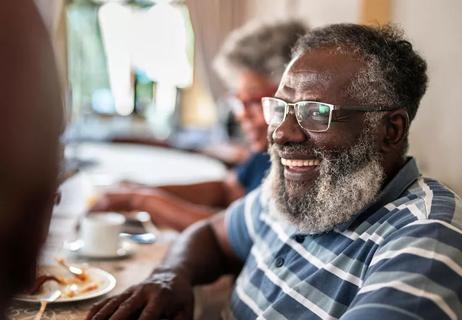
Living longer is more than just growing older — it’s also about living life to its fullest
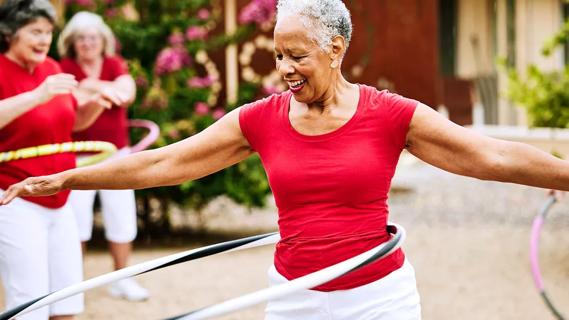
It's never too early to prevent bone loss with diet, physical activity

Understanding what's in your control, and what's not
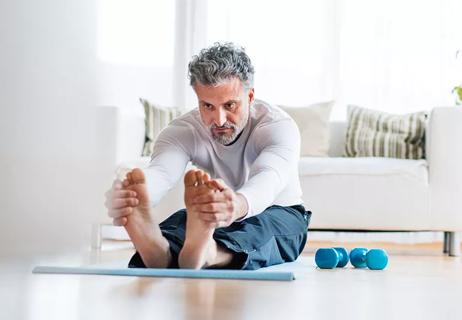
Advice for preventing and treating health issues
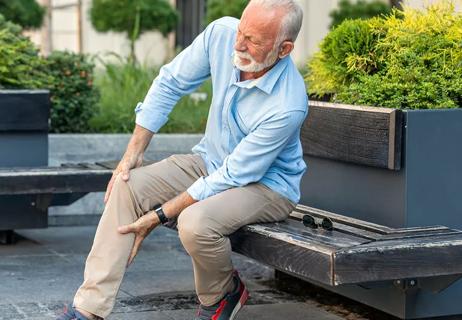
Take steps now to keep them in good working order

Mental health issues can be tied to medical problems

The tropical fruit is a good source of antioxidants and vitamin C

Most people fall asleep within 10 to 20 minutes, but if your experience is different, adjusting your sleep schedule may help

Exploring your hidden side can lead to better understanding of what makes you tick